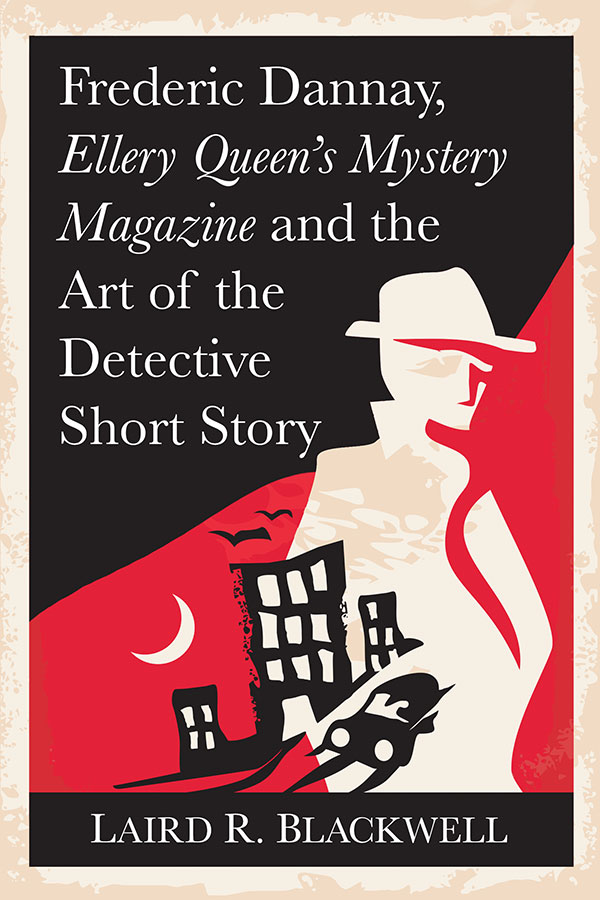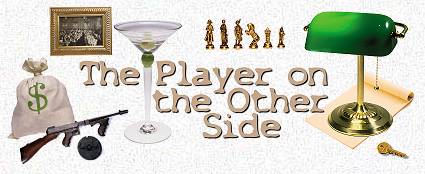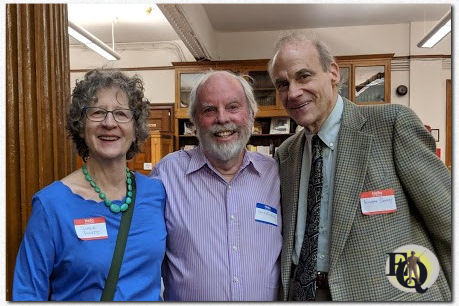|
 This
critical study presents the
first thorough examination of
the role Queen played in the
flourishing of the
detective-crime short story with
particular focus on the
importance of Frederic Dannay as
editor of EQMM and
scores of short story
anthologies. This
critical study presents the
first thorough examination of
the role Queen played in the
flourishing of the
detective-crime short story with
particular focus on the
importance of Frederic Dannay as
editor of EQMM and
scores of short story
anthologies.
In the
1940s when the popularity of the
detective short story was waning
and the major periodicals in
England that featured it (e.g.
The Strand,
The Grand,
Pearson’s,
Windsor,
Argosy)
were closing up shop, “there was
a gleam of light from across the
Atlantic. The steady flame of
Ellery Queen was alive”
(Michael Gilbert, “EQMM” in
The
Tragedy of Errors,
p. 181). And that gleam—EQMM,
which is still thriving today,
and the scores and scores of
Queen short story
anthologies—rescued the
detective short story from
oblivion, brought the
“old
masters”
back to public attention, and
encouraged potential
“new
masters”
to revitalize the genre.
Many of
the authors ("Old Masters," "New
Masters," and "tec tyros"
alike), detectives, and stories
that Queen promoted and
championed are listed and
described, including authors who
won Edgars, EQMM
Contests, Pulitzer and Nobel
Prizes, famous authors from
other genres such as Baum,
Borges, Dreiser, Whitman, Wells,
and even William Butler Yeats,
"lost and forgotten" stories of
classic authors, and auspicious
debuts of authors and detectives
who were to become famous. With
over 50 years as author,
historian, and editor, Queen was
the detective-crime short
story's "guardian angel, patron
saint, and publisher." Without
the influence of Queen, the
detective-crime short story may
not have survived, for Queen was
"the last bastion of short
mystery fiction"; he was "the
detective-crime short story."
As author of the popular
Ellery Queen
novels and short stories, as literary historian and critic, and
especially as editor of the
renowned Ellery
Queen
Mystery Magazine-- Ellery
Queen was the single greatest
force in the mid-1900s for the
survival and health of the
detective-crime short story.
Queen's indefatigable and
enthusiastic promotion of his
favorite form of fiction was
vital to its continuing
popularity after the passing of
Doyle and Chesterton and
Christie and Hammett and its
other famous authors of the
early- and mid-20th Century.
(Click on the cover to order!)
As a life-long
fan of detective fiction, my
first encounter with
EQMM
on the dusty
shelves of a used bookstore in
San Francisco was a momentous
event which led me to years of
enjoyable reading and,
eventually, my accolade to
Ellery Queen—Frederic
Dannay, EQMM, and the Art of the
Detective Story—which
was my response to what I
believed was insufficient
recognition of Queen’s vital
role in the renaissance and
renewed popularity of the
detective short story.
What a labor of
love—to reread the hundreds of
editions of
EQMM
and the scores of Queen
anthologies in my personal
collection. I knew Queen (mostly
Dannay) had nurtured the
detective short story and its
authors, old and new, but before
rereading the magazines and
anthologies I didn’t fully
appreciate the extent to which
Queen saved, revitalized, and
shaped the genre. From the first
anthology in 1938 and the first
edition of
EQMM
in 1941 through Dannay’s death
in 1982, Queen published over
5000 detective short stories,
almost 700 of which were
reprints and new stories of “the
masters” (established and
popular detective fiction
authors) and almost 600 were
first stories of debut authors,
some of whom were to become
masters of the future. Among
Queen’s great gifts to readers
were the reprinting of many
“lost and forgotten” tales of
famous authors as well as little
known tales of authors renowned
for their work in other genres,
including numerous recipients of
Edgar Awards and Pulitzer
Prizes.
And the
published stories were only part
of the Queen gifts—his
commentary and critique,
sometimes extensive, were
themselves a bibliographic
treasure. Reading his comments
was a nostalgic, entertaining,
thought-provoking, and
informative journey through the
public and the behind-the-scenes
history of detective fiction and
its creators. A collection of
these Queen anecdotes,
ponderings, and reflections
would make fascinating reading
for every detective fiction fan.
I hope readers of
my study of Queen’s vast
contribution to the detective
short story will enjoy the
journey as much as I did
researching and writing it. May
every detective short story you
read—classic
or new—bring
to mind the legacy of Ellery
Queen/Fred Dannay, for without
Queen the genre may have
withered on the vine a half
century ago, and what a loss
that would have been for all of
us lovers of detective fiction.
|




![]()





